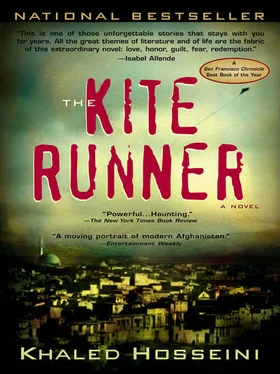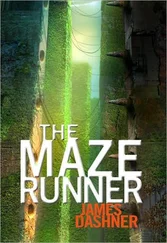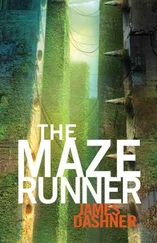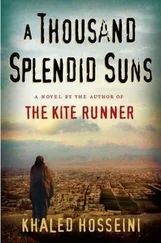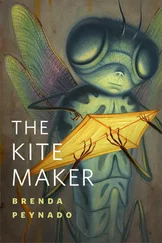“I said, Do you understand?” Baba roared.
I flinched. “Yes, Baba.”
“Hassan’s not going anywhere,” Baba snapped. He dug a new hole with the trowel, striking the dirt harder than he had to. “He’s staying right here with us, where he belongs. This is his home and we’re his family. Don’t you ever ask me that question again!”
“I won’t, Baba. I’m sorry.”
We planted the rest of the tulips in silence.
I was relieved when school started that next week. Students with new notebooks and sharpened pencils in hand ambled about the courtyard, kicking up dust, chatting in groups, waiting for the class captains’ whistles. Baba drove down the dirt lane that led to the entrance. The school was an old two-story building with broken windows and dim, cobblestone hallways, patches of its original dull yellow paint still showing between sloughing chunks of plaster. Most of the boys walked to school, and Baba’s black Mustang drew more than one envious look. I should have been beaming with pride when he dropped me off – the old me would have – but all I could muster was a mild form of embarrassment. That and emptiness. Baba drove away without saying good-bye.
I bypassed the customary comparing of kite-fighting scars and stood in line. The bell rang and we marched to our assigned class, filed in in pairs. I sat in the back row. As the Farsi teacher handed out our textbooks, I prayed for a heavy load of homework.
School gave me an excuse to stay in my room for long hours. And, for a while, it took my mind off what had happened that winter, what I had let happen. For a few weeks, I preoccupied myself with gravity and momentum, atoms and cells, the Anglo-Afghan wars, instead of thinking about Hassan and what had happened to him. But, always, my mind returned to the alley. To Hassan’s brown corduroy pants lying on the bricks. To the droplets of blood staining the snow dark red, almost black.
One sluggish, hazy afternoon early that summer, I asked Hassan to go up the hill with me. Told him I wanted to read him a new story I’d written. He was hanging clothes to dry in the yard and I saw his eagerness in the harried way he finished the job.
We climbed the hill, making small talk. He asked about school, what I was learning, and I talked about my teachers, especially the mean math teacher who punished talkative students by sticking a metal rod between their fingers and then squeezing them together. Hassan winced at that, said he hoped I’d never have to experience it. I said I’d been lucky so far, knowing that luck had nothing to do with it. I had done my share of talking in class too. But my father was rich and everyone knew him, so I was spared the metal rod treatment.
We sat against the low cemetery wall under the shade thrown by the pomegranate tree. In another month or two, crops of scorched yellow weeds would blanket the hillside, but that year the spring showers had lasted longer than usual, nudging their way into early summer, and the grass was still green, peppered with tangles of wildflowers. Below us, Wazir Akbar Khan’s whitewalled, flat-topped houses gleamed in the sunshine, the laundry hanging on clotheslines in their yards stirred by the breeze to dance like butterflies.
We had picked a dozen pomegranates from the tree. I unfolded the story I’d brought along, turned to the first page, then put it down. I stood up and picked up an overripe pomegranate that had fallen to the ground.
“What would you do if I hit you with this?” I said, tossing the fruit up and down.
Hassan’s smile wilted. He looked older than I’d remembered. No, not older, old . Was that possible? Lines had etched into his tanned face and creases framed his eyes, his mouth. I might as well have taken a knife and carved those lines myself.
“What would you do?” I repeated.
The color fell from his face. Next to him, the stapled pages of the story I’d promised to read him fluttered in the breeze. I hurled the pomegranate at him. It struck him in the chest, exploded in a spray of red pulp. Hassan’s cry was pregnant with surprise and pain.
“Hit me back!” I snapped. Hassan looked from the stain on his chest to me.
“Get up! Hit me!” I said. Hassan did get up, but he just stood there, looking dazed like a man dragged into the ocean by a riptide when, just a moment ago, he was enjoying a nice stroll on the beach.
I hit him with another pomegranate, in the shoulder this time. The juice splattered his face. “Hit me back!” I spat. “Hit me back, goddamn you!” I wished he would. I wished he’d give me the punishment I craved, so maybe I’d finally sleep at night. Maybe then things could return to how they used to be between us. But Hassan did nothing as I pelted him again and again. “You’re a coward!” I said. “Nothing but a goddamn coward!”
I don’t know how many times I hit him. All I know is that, when I finally stopped, exhausted and panting, Hassan was smeared in red like he’d been shot by a firing squad. I fell to my knees, tired, spent, frustrated.
Then Hassan did pick up a pomegranate. He walked toward me. He opened it and crushed it against his own forehead. “There,” he croaked, red dripping down his face like blood. “Are you satisfied? Do you feel better?” He turned around and started down the hill.
I let the tears break free, rocked back and forth on my knees. “What am I going to do with you, Hassan? What am I going to do with you?” But by the time the tears dried up and I trudged down the hill, I knew the answer to that question.
I TURNED THIRTEEN that summer of 1976, Afghanistan’s next to last summer of peace and anonymity. Things between Baba and me were already cooling off again. I think what started it was the stupid comment I’d made the day we were planting tulips, about getting new servants. I regretted saying it – I really did – but I think even if I hadn’t, our happy little interlude would have come to an end. Maybe not quite so soon, but it would have. By the end of the summer, the scraping of spoon and fork against the plate had replaced dinner table chatter and Baba had resumed retreating to his study after supper. And closing the door. I’d gone back to thumbing through Hãfez and Khayyám, gnawing my nails down to the cuticles, writing stories. I kept the stories in a stack under my bed, keeping them just in case, though I doubted Baba would ever again ask me to read them to him.
Baba’s motto about throwing parties was this: Invite the whole world or it’s not a party. I remember scanning over the invitation list a week before my birthday party and not recognizing at least three-quarters of the four hundred-plus Kakas and Khalas who were going to bring me gifts and congratulate me for having lived to thirteen. Then I realized they weren’t really coming for me. It was my birthday, but I knew who the real star of the show was.
For days, the house was teeming with Baba’s hired help. There was Salahuddin the butcher, who showed up with a calf and two sheep in tow, refusing payment for any of the three. He slaughtered the animals himself in the yard by a poplar tree. “Blood is good for the tree,” I remember him saying as the grass around the poplar soaked red. Men I didn’t know climbed the oak trees with coils of small electric bulbs and meters of extension cords. Others set up dozens of tables in the yard, spread a tablecloth on each. The night before the big party Baba’s friend Del-Muhammad, who owned a kabob house in Shar-e-Nau, came to the house with his bags of spices. Like the butcher, Del-Muhammad – or Dello, as Baba called him – refused payment for his services. He said Baba had done enough for his family already. It was Rahim Khan who whispered to me, as Dello marinated the meat, that Baba had lent Dello the money to open his restaurant. Baba had refused repayment until Dello had shown up one day in our driveway in a Benz and insisted he wouldn’t leave until Baba took his money.
Читать дальше
